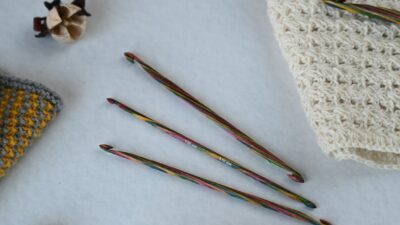Diving into the world of crochet patterns can sometimes feel like deciphering a secret code. Those mysterious abbreviations scattered throughout instructions might leave beginners scratching their heads in confusion. But don’t worry—once you master these shorthand notations, you’ll be reading patterns like a pro in no time!
Why Crochet Abbreviations Matter
Crochet patterns use abbreviations to save space and make instructions easier to follow. Instead of writing out “double crochet” dozens of times in a pattern, designers simply use “dc.” This streamlined approach makes patterns more concise and easier to follow once you understand the language.
Common Crochet Stitch Abbreviations
Here’s a comprehensive list of the most essential crochet abbreviations you’ll encounter:
Basic Crochet Stitches
ch: Chain stitch – The foundation of most crochet projects
sc: Single crochet – A short, dense stitch perfect for amigurumi and sturdy fabric
hdc: Half double crochet – A versatile middle-height stitch
dc: Double crochet – Creates a taller, more open fabric
tr or trc: Treble crochet / Triple Crochet – An even taller stitch for more open, lacy designs
dtr: double treble crochet – one of the tallest stitches
Stitch Variations
sl st: Slip stitch – Used for joining or moving across stitches without adding height
inc: Increase – Adding stitches to widen your work
dec: Decrease – Reducing stitches to narrow your work
sc2tog – single crochet two together – another way to reduce stitches
dc2tog – double crochet two together
sk: Skip – Move past a stitch without working into it
sp: Space – The gap between stitches
Stitch Placement
BLO: Back loop only – Working through just the back loop of a stitch
FLO: Front loop only – Working through just the front loop of a stitch
FPdc: Front post double crochet – Worked around the post from the front
BPdc: Back post double crochet – Worked around the post from the back
Pattern Structure
rnd: Round – For working in circular patterns
row: Row – For working back and forth
rep: Repeat – Perform the same sequence again
st(s): Stitch(es) – The individual units of crochet
tog: Together – Working multiple stitches as one
Putting Abbreviations into Practice
Let’s decode a simple pattern snippet:
“Ch 20, dc in 4th ch from hook, dc in each ch across (18 dc). Ch 3 (counts as dc), turn, dc in each dc across.”
Translated, this means:
Create a chain of 20 stitches
Make a double crochet in the 4th chain from your hook
Continue making double crochets in each remaining chain (resulting in 18 double crochets total)
Chain 3 (which counts as your first double crochet of the next row)
Turn your work
Make double crochets in each double crochet across the row
Tips for Mastering Crochet Abbreviations
Keep a reference handy: Print out an abbreviation guide to keep with your project
Start simple: Begin with patterns that use fewer stitch types until you build confidence
Read through first: Review the entire pattern before starting to identify any unfamiliar terms
Watch tutorials: If you’re stuck on a particular abbreviation, search for video demonstrations
Practice consistently: The more patterns you work through, the more natural these abbreviations will become
Final Thoughts
Understanding crochet abbreviations is like learning any new language—it takes practice, but soon becomes second nature. Don’t be discouraged if you need to look up terms frequently at first. Before long, you’ll be confidently working through complex patterns without missing a beat!
